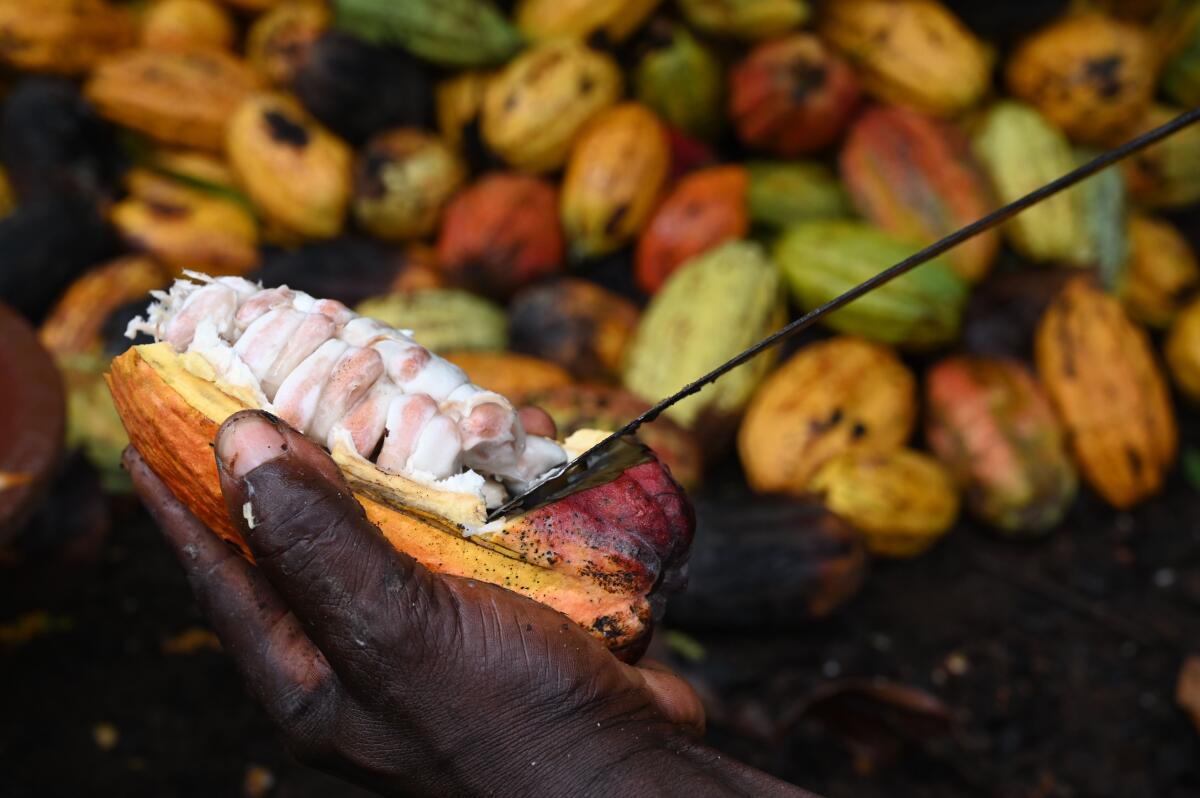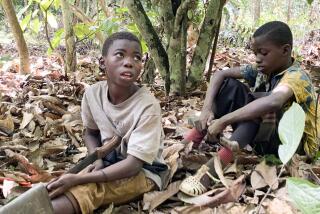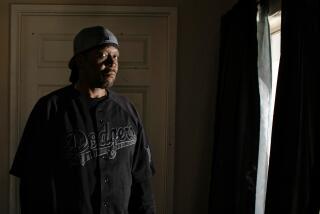U.S. Supreme Court signals interest in child-slavery cocoa lawsuit

- Share via
The U.S. Supreme Court signaled interest in giving companies a broader shield from lawsuits by victims of overseas atrocities, asking the Trump administration for advice on a case stemming from child slavery on cocoa farms in Ivory Coast.
Nestle’s U.S. unit and Cargill Inc. are urging the court to end a suit that accuses them of complicity in the use of forced child labor in the African country. The Supreme Court on Monday asked U.S. Solicitor General Noel Francisco to advise whether the justices should hear the companies’ appeals.
Why is it so difficult for poor countries to break out of poverty by extracting higher prices for raw materials like cocoa and controlling the supply chain?
The case would test a centuries-old law, the 1789 Alien Tort Statute, that became a favorite tool of human-rights activists before the Supreme Court started scaling it back. The court decided in 2013 that the law generally doesn’t apply beyond U.S. borders, and in 2018 that foreign corporations can’t be sued in that context.
But a federal appeals court said the allegations against Nestle and Cargill might have enough of a U.S. connection if the plaintiffs amended their lawsuit to provide more specifics.
“The allegations paint a picture of overseas slave labor that defendants perpetuated from headquarters in the United States,” the San Francisco-based appeals court said.
The case, filed by six former slaves who were kidnapped from their native Mali, has been moving up and down the federal court system since 2005. The companies are accused of aiding and abetting slave labor by giving Ivory Coast farmers financial assistance in the expectation that cocoa prices would stay low. The suit alleges the companies were fully aware that child slavery was being used.
The ex-slaves say children were forced to work as much as 14 hours a day, given only scraps to eat, and were severely beaten or tortured if they tried to escape.
In its appeal, Nestle USA said the plaintiffs “have not even alleged that their injuries can be traced to the domestic conduct of a defendant.” The company said it “unequivocally condemns child slavery.”
Cargill said the plaintiffs “do not allege they worked on a farm from which Cargill purchased cocoa or to which Cargill provided any form of assistance.”
Combined, Ivory Coast and Ghana produce almost 60% of the world’s cocoa, according to the U.S. Labor Department’s Bureau of International Affairs.
“Latest estimates found 2 million children engaged in hazardous work on cocoa farms in these two countries,” the bureau says on its website.
In 2001, several chocolate giants — including Nestle — entered into an agreement to eliminate by 2005 “the worst forms of child labor” in the growing and processing of the cocoa beans they use. The deadline has been extended multiple times. There’s now a target of reducing such labor 70% by this year, but the Washington Post has reported that the companies probably won’t meet that timeline either.
Last year, two U.S. senators — Democrats Sherrod Brown of Ohio and Ron Wyden of Oregon — asked customs officials to block Ivorian cocoa imports unless the shipments could be certified as free of child labor. A federal investigation into the matter started in October.
Multinational companies have faced dozens of suits accusing them of playing a role in human rights violations, environmental wrongdoing and labor abuses.
More to Read
Inside the business of entertainment
The Wide Shot brings you news, analysis and insights on everything from streaming wars to production — and what it all means for the future.
You may occasionally receive promotional content from the Los Angeles Times.











